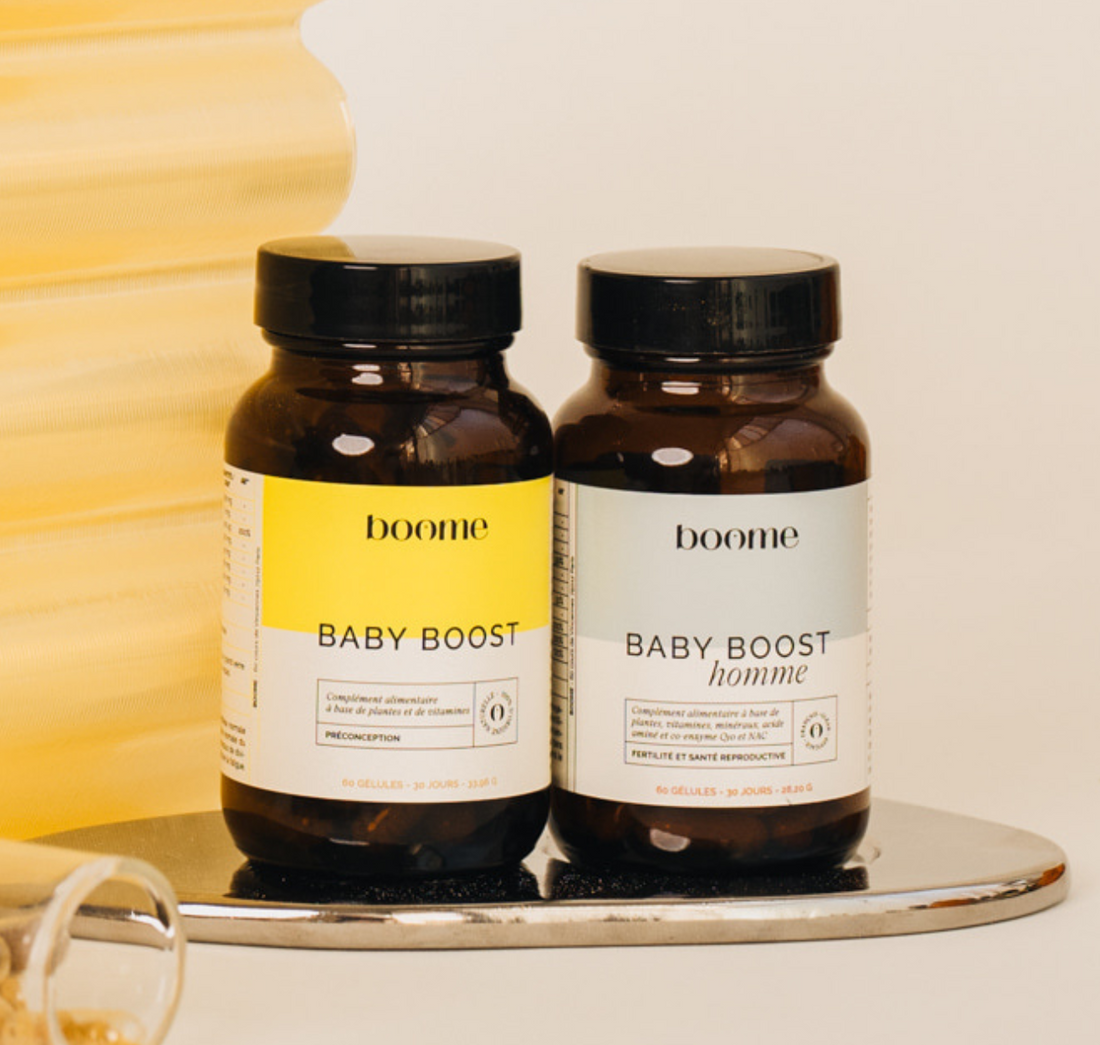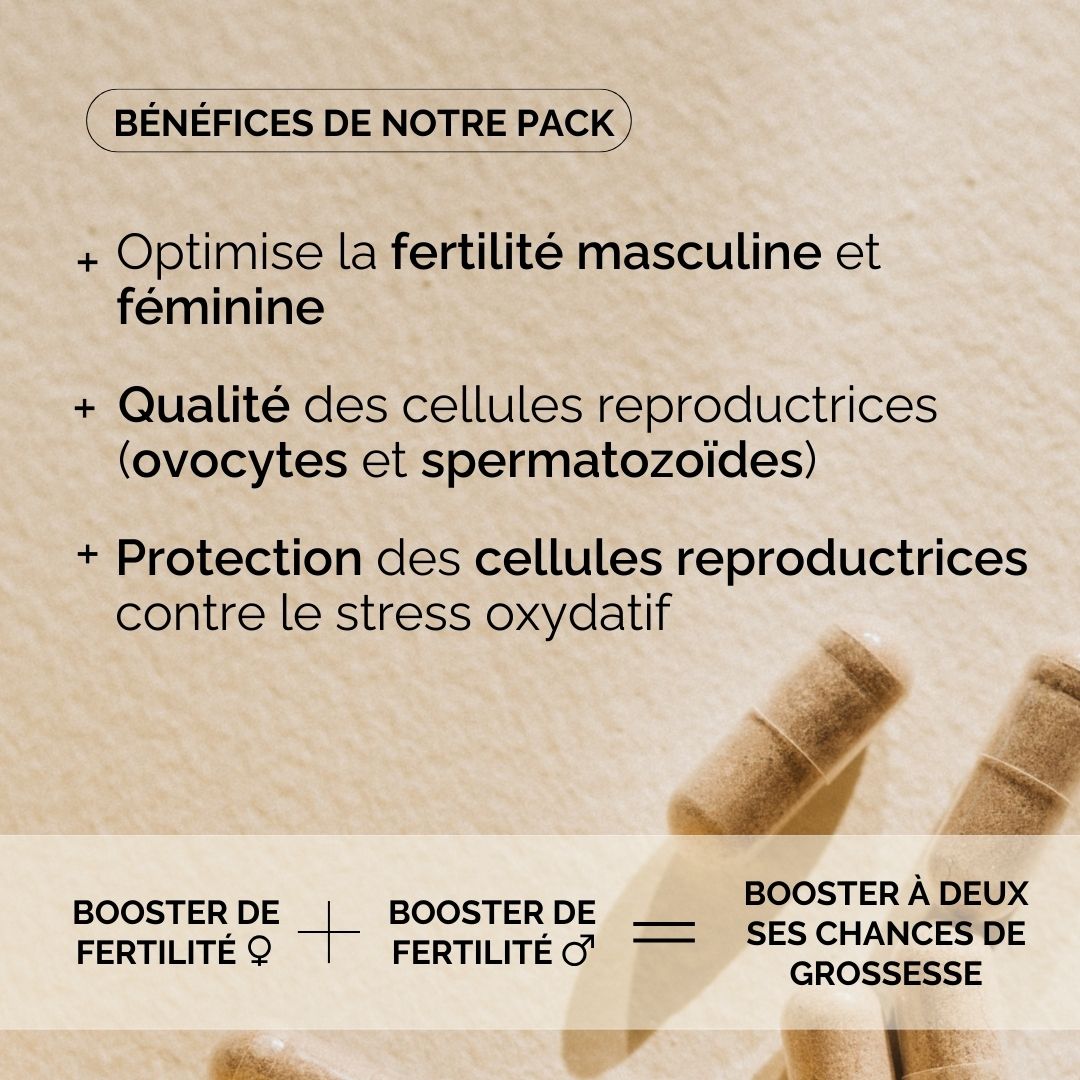
Did you know that Charlie Chaplin had a baby at 73? Yes, unlike women, men remain fertile for a long time. A very long time. But are they as fertile at 25 as they are at 70? Because when it comes to conceiving a child, we almost exclusively talk about female fertility. Expectant mothers who remain dependent on the famous biological clock. So, until what age is a man fertile? Let's take a closer look at this subject, which is still not discussed enough, but we'll dissect it for you from A to Z.
How does fertility work in men?
Let's start with a quick look back at biology class (I promise, it's not that far away). To remain fertile, a man must produce between 40 and 50 million sperm per milliliter. And according to Livi , there are 4 factors to note to assess their quality:
- the number of gametes;
- sperm motility;
- their shape;
- their volume.
Of course, remembering that as long as there are sperm, there is every hope of conception. Remember, it only takes one to fertilize an egg!
Until what age does a man's fertility remain intact?
As you can see, it's a common misconception that a man remains fertile ground throughout his life. But no! According to the Pasteur Institute , one in seven couples worldwide fail to have a baby. And in 30 to 50% of cases, it's the male partner who is responsible for this decline in fertility.
The French Biomedicine Agency states that 78% of men under 25 manage to conceive within 6 months. Compared to only 58% of those over 35. This is how this gradual decline in fertility is explained:
- The quantity of sperm decreases, and therefore the risk of fertilization also decreases.
- Testosterone (which plays a key role in sexual performance) also declines, which can lead to erectile dysfunction.
It's also worth noting that the older a person gets, the more their DNA becomes fragmented. What does this mean? Well, it means that the risk of chromosomal abnormalities, Down syndrome, and genetic diseases increases in embryos. And even that of premature birth.
Of course, you can still have a baby with a man over 35! You just have to keep in mind that the chances of pregnancy can sometimes be complicated.
Do you have any doubts about your current fertility? Our article " Man: How do you know if you're fertile ?" will help you find out for sure.
What to do if male fertility rates drop?
Good news: Sperm quality is renewed every 70 to 90 days. So, gentlemen, if yours is in decline, you should boost your chances of conceiving in just 2 to 3 months. Starting with (if necessary) improving your lifestyle.
Quit smoking
Recent studies show that smoking affects the shape, mobility, and number of sperm. Smoking can lead to increased oxidative stress, thus having a devastating effect on sperm.
Lose weight
Obesity can also affect sperm quality. It:
- Affects blood circulation (= erectile dysfunction).
- Creates hormonal changes (= risks of infertility).
- Increases sperm oxidation (= poor quality).
To limit all of this: exercise, a good diet... and there you have it!
Eliminate processed products
We know, we're not fun. But to boost your fertility capacity, you'll also have to consider limiting:
- red meat;
- processed products;
- coffee.
These foods, rich in saturated fatty acids and trans fats, can induce poor sperm quality.
Limit your alcohol consumption
No, alcohol isn't your reproductive system's best friend either. In fact, it's quite harmful, since it causes a drop in testosterone and other hormones linked to fertility.
So, we avoid drinking too much. Or drinking at all, if we feel able to.
Monitor the temperature
It's less well known, but if the testicles get too hot, it affects the quality of the sperm. This can happen if you:
- wear clothes that are too tight;
- work with the computer on your thighs;
- keep your phone in your pocket.
To avoid overheating, wear loose-fitting clothing. And move around regularly to freshen up your body (and your mind).

Achat express
Boosting fertility in men: we explain
We know how stressful infertility can be when trying to conceive. Here are some tips to help you overcome this.
Boosting male fertility through diet
To boost your sperm production, start by incorporating a diet based on fruits, vegetables, fish, and whole grains. The best part ? Foods rich in antioxidants like:
- vitamin B12;
- vitamin C;
- zinc;
- folate.
Or in omega 3 such as:
- oily fish (sardines, mackerel, herring, etc.)
- terrestrial plants (rapeseed oil, flax, walnuts, etc.)
You can add them to your meals, or consume them in the form of omega 3 food supplements .
Learn to manage your stress
The link between male fertility and stress has not yet been concretely established. However, what we do know is that stress leads to a definite drop in libido. And without it, it's difficult to want to have a child.
To limit it, consider practicing meditation or breathing exercises. Even 5 minutes is enough to reduce stress levels. A significant difference!
Women can also boost their fertility
Are you a woman looking to boost your fertility? At Boome, we want you to have every chance of success. That's why we've created fertility vitamins for women . Plant-based and 100% natural, they'll help you:
- Boost your ovulation.
- Improve the quality of your oocytes.
- Rebalance your cycles and hormones.
In short, something to give you a real boost if you are having difficulty conceiving.
So remember that human reproduction is more complex than it seems. And fertility isn't just a woman's issue! Fortunately, there are concrete tips to boost your chances of conception. Because yes, despite the challenges of procreation, hope and solutions remain within reach for those who aspire to parenthood.










